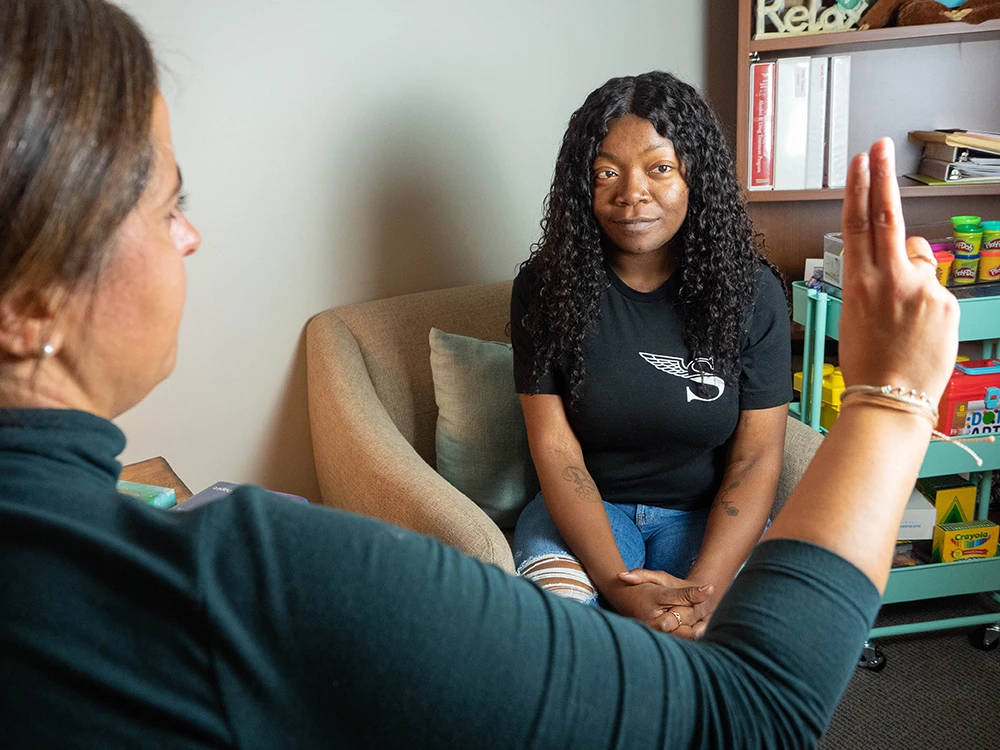Brainspotting
Traumatic events can overwhelm the brain and leave behind unprocessed traumatic impressions that manifest as psychological or emotional problems. Brainspotting allows a trained therapist to utilize a client’s field of vision to discover specific spots in the brain where trauma is being held. Brainspotting does not remove traumatic memories; it diminishes the negative feelings associated with those memories.
Tri-Star Counseling therapists use Brainspotting as a powerful and effective technique for identifying, processing, and releasing various types of trauma. It can be combined with talk therapy or as a stand-alone healing method. Contact us to learn more about this innovative technique and to see if it could help you.
What is Brainspotting?
Brainspotting therapy uses spots in your visual field to help locate, process, and deal with trauma, experiences, and other mental health issues. Brainspotting (BSP) was discovered in 2003 by David Grand, Ph.D. It is a therapeutic tool that helps identify brain activity connected to where you look and related feelings as you struggle with life’s challenges. Once a “brainspot” is identified, deep processing releases and resolves the unprocessed traumatic impression. BSP essentially helps your brain “reset” how it deals with a particular incident or trauma.
One research study found Brainspotting to be more effective than other leading therapies. Patients continued improving after their BSP sessions were completed. All other modalities in the research project showed patients’ symptoms returning by the six-month follow-up.
What Can I Expect from a Brainspotting Session?
No initial preparation is necessary when your Tri-Star Counseling therapist elects to use Brainspotting. This is a non-invasive therapeutic technique and each patient can react differently. Your therapist may begin by asking several questions to understand your specific trauma or problem. They may then use their hand or a tool and ask you to focus on it as it moves to several points across your range of vision. Your responses may leave you feeling normal or immediately improved, or you may feel fatigued for a few days. Each patient’s individual makeup, what they need to process, and other factors contribute to Brainspotting’s effects.
You may be asked to wear headphones because sound can help clients have a more powerful therapeutic experience. Various sounds can help you process deeper because it stimulates both sides of the brain and can also help the experience be more relaxing and not as stressful. This tool can be used in many sessions to help discover and resolve different issues that cause you anxiety, stress, depression, or other mental health problems.
Your Tri-Star Counseling therapist can explain more about the science behind Brainspotting and how it works during your therapy session. Feel free to ask questions about this or any other techniques used to help you resolve mental health issues or conditions.
When is Brainspotting a Suitable Therapy?
Brainspotting is suitable for anyone and is very helpful in treating a wide variety of conditions such as:
- Physical and Emotional Trauma
- Anxiety, Panic Attacks, Phobias, and OCD
- Depression
- Grief and Loss
- PTSD
- Recovery from Injury and Accidents
- Sports, Performance, and Creative Enhancement
- Chronic Pain Conditions
- Substance Use
- Preparation and Recovery from Surgery
Contact Us
Call or message us today. Share some information with a team member and schedule a consultation with us in Colonial Heights, Tennessee, just off Interstate 81.


